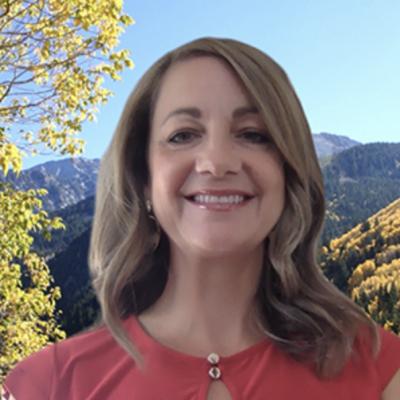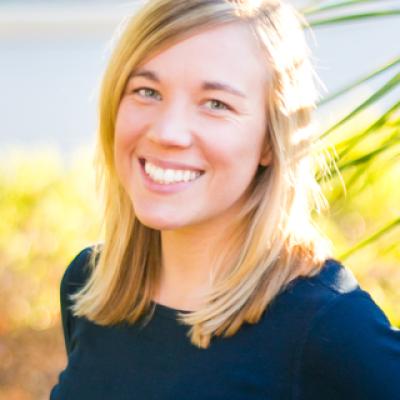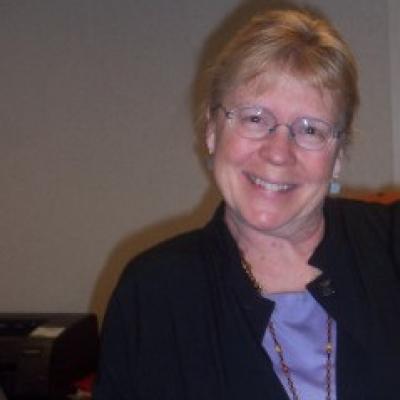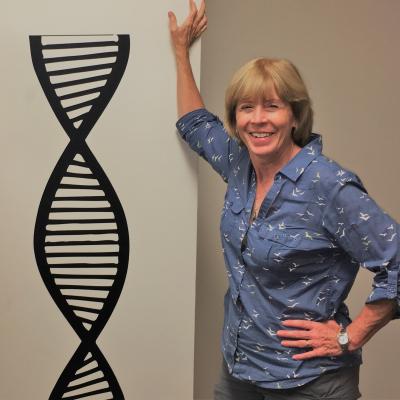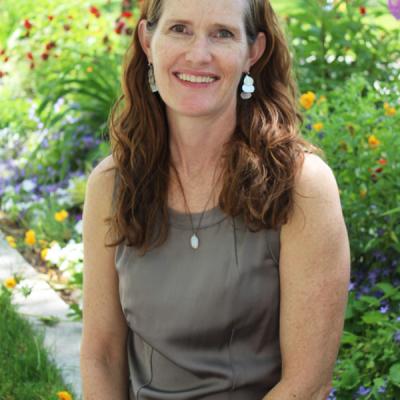Parental Influence and Support
Many of the women interviewed for this project had parents who supported them in their choice to work in STEM fields. A common trend among women is that their fathers all worked in STEM fields and were mentioned by the women as important influences. Though a trend of fathers might be surmised to occur due to the masculinist frame of STEM fields, the interviewees held both their parents in high esteem. The explanations correlate with research on the topic of parental influence on women in STEM. Hoferichter and Raufelder explain they found that "while for girls, mother and father support in 8th grade were associated with better grades in math and biology, for boys, neither mother nor father support were significantly related to their STEM performance." (2019, "Mothers and Fathers—Who Matters for STEM Performance?")
Holly Sebahar, PhD
"I wouldn't say I've really had difficulty because I'm a woman I— in my whole career. You know, and so is part of that, like my mom always raised me like, “You can do it, you are capable.” And so it could be that if I had small barriers here or there, I just was taught to sort of just keep going and don't really mind what other people say. My mom was huge on that as well. “Don't worry about what others are saying. You know what you want. You go get it.” That's it."
...For sure, my mom and dad were probably my biggest inspiration and I think they introduced me to science, but not in a really direct way. Neither of my parents went to college, so I was a first generation student. So neither of them were technically scientists, but my mom loved math, so she would kind of just talk to us about the fun ways that it would appear in our daily lives. And then my dad would take us almost on a daily walk to the park and we called it the nature trail. So we--he would just sort of look and we would just be curious and wonder. So, you know, there were lots of amphibians and turtles and birds and different plants and stuff. And so I think they introduced me to science in sort of an indirect way, but they helped me be curious and really excited about nature for sure."
Holly Sebahar discusses the role that her parents unwavering support and encouragement had on her as she pursed the rigorous path of a doctorate degree in organic chemistry.
In addition to supporting her throughout her pursuit of her career, Sebahar also credits her original interest in science to her parents. Her exposure to science is one of the reasons that she grew to love organic chemistry and the process of science. Dr. Sebahar cites her parents as a source of inspiration and curiosity.
Kristina Feldman, PhD
When asked about how she thought her family has helped to shape her into the professional she is today Dr. Kristina Feldman credits her mom with helping her locate powerful women. Growing up with such empowerment helped Dr. Feldman pursue a career in the social sciences. Facilitating the search for representation is a common form of parental influence and support across many of the women spotlighted in this exhibit.
"I'd say they were always encouraging of what I was interested in and would like, and my mom especially, like we'd go to the library and check out different books and things like that to whatever I was interested in at that time. We had, I remember having, like, a really cool encyclopedia set that was really neat, and she really encouraged reading that. And then also she was really supportive of me finding female figures that were in books and things like that, that were interested in science and just kind of anything really, which was really amazing."
McKenzie Skiles, PhD
As a snow hydrologist and Director of the Snow HydRO Lab at the University of Utah, Mckenzie Skiles is one of the many climate scientists trying to determine how changes in our climate will impact our future. The field of hydrology may be niche to people outside of climate science, but it is without a doubt an important endeavor. Dr. Skiles mentions that even if her research is not fully understand by her parents they are still highly supportive in her endeavors. They supported her in many ways, but she emphasizes the importance of their emotional support as she pursed her education and dealt with the difficulties of financing. Now as a successful hydrologist she credits her parents and family with fostering her creativity and helping her through academia.
"My dad was a math teacher and we played with a lot of puzzles and he always asked us lots of questions and had us explain what we were thinking about. So I think his way of fostering our curiosity about the world and making us think a little bit more about it probably had a lot to do with me going into an environmental science field. Emotionally, they were always very supportive, but I come from a big family. There's six kids and my parents never really had very much money. So I knew that if I was going to go to college, I was going to have to pay for it myself. And so financial support is always a big part of whether or not you go on to higher education and so that was one challenge that I had to figure out how to overcome that. But generally, my family and parents were always really supportive, even if they didn't fully understand always what I was studying. They were supportive."
Kirtly Parker Jones, M.D.
Dr. Jones discusses the significant role her father played in her early years. Her father received a Fulbright Scholarship to study geology and there was definitely the presence of early scientific influence there. She mentions how she was taught foundational biology from an early age, and after taking biochemistry she decided that medicine was the route she wanted to take.
"So if you have a dad who teaches you earth science from the time you're little, it's big. It's fascinating. All you need to do is have a little bit of information and then open your eyes and it's everywhere."
Cynthia Burrows, P.h.D.
When interviewed, Dr. Burrows did not mention a specific experience from one parent that inspired her to pursue science. Instead, she was able to say that she learned things from both her engineer father and her stay-at-home mother. To this day, she carries the love for outdoor activities that her father inspired. She also says this love is what made her want to back in the mountain west. While her father's STEM career may have helped in her early exposure to science, Dr. Burrows claimed that her main influence was her high school honors chemistry course.
"I was a skier at an early age. My brother, my older brother didn't really care for camping and canoeing and all this stuff. So I did all those things with my dad and did all of the domestic things like making cookies with my mom, and I did all of that camping and skiing activities with my dad. So it ended up being...a nice balance to have things that I did with both my mom and my dad."
Lisa Diamond, Ph.D
Lisa Diamond grew up in a home in Los Angeles. Her father, a research cardiologist, took the time to talk with her and encouraged her to be involved in his work. Though she didn’t understand much at such a young age about her father's work, she did her best to engage in the conversations.
She did understand that he was hoping to create a scholarly relationship between the two of them, however. Looking back, she tells us she had “no idea what [he was] talking about, but I realized, now, that that was his way of trying to connect with me.”
"My dad started to give me copies of his academic papers and he would publish them which [were] about things that I completely did not understand, they were like statistical modeling of like cardiovascular risk factors and using like Bayesian models to predict myocardial infarction and I was like well, no I cannot, I cannot understand the sentences, dad."
Amy Sibul, M.S.
For Amy Sibul, her fascination with science started as a kid living in the foothills of the Rocky Mountains in Colorado. It was here, with this wonderful access to public lands, that Amy was able to explore and appreciate the wonders of the natural world. On top of that, her dad was a radiologist, but majored in zoology in college, and he taught her plant and animal identification. While Amy’s mother was interested in anthropology, she never pursued that, choosing instead to be a stay-at-home mom. However, Amy vividly remembers her mom telling her as a kid,
"Keep your 20s to yourself...give yourself permission to be selfish and pursue your own selfish interests before you move on to marriage and parenting. That instilled a really powerful message in me and that is exactly what my sister and I both did."
Page researched and written by Jacqueline Cockrell, Shaistah Din, Lydia Hall, Jack Temme, Caitlin Pham, Jessica Davis, and Isabel DuBay.
Later edited by Pamalatera C. Fenn

